Horizon: Call of the Mountain is going to be Disneyland for Aloy fans
And a humbling experience for wannabe warriors
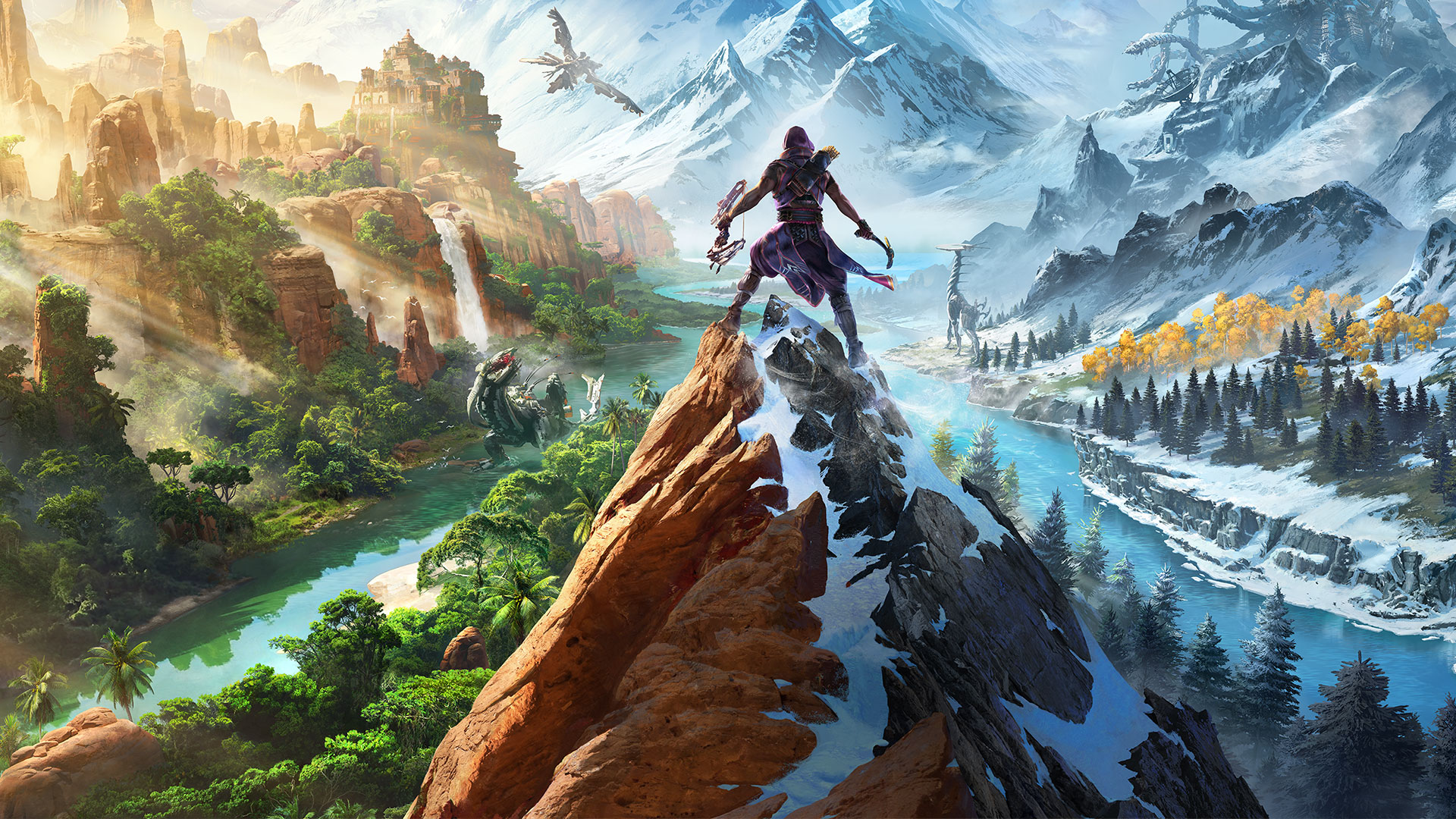
I'm sat in the back of a small rowing boat at the start of the Horizon: Call of the Mountain PSVR 2 demo. It's a scene we've seen in several trailers for the game, but I don't think I was quite prepared for just how epic it would feel to exist in the Horizon world. After a bag is removed from my head and the world beyond comes into focus, I can't help but utter an actual gasp… it looks insanely good - a vast leap from the graphics on offer with the original PlayStation VR headset.
Those upgraded 2000x2040 pixels per eye displays are certainly something. The two people who are apparently holding me captive are staring at me, their skin and clothing rendered with such detail that I almost forget it's a VR game. I look up at the jungle surrounding me, all vibrant colors as the tree sway in the breeze. I lean over the edge of the water to appreciate its crystal clearness, but then remember that I can dip my hand in the river as we move through it. I can feel the ripples in the water replicated by the haptic rumbles in the controllers, and instantly feel so much more connected to this world I've spent so much time in over the course of two PlayStation titles.
Tiny human, giant robots
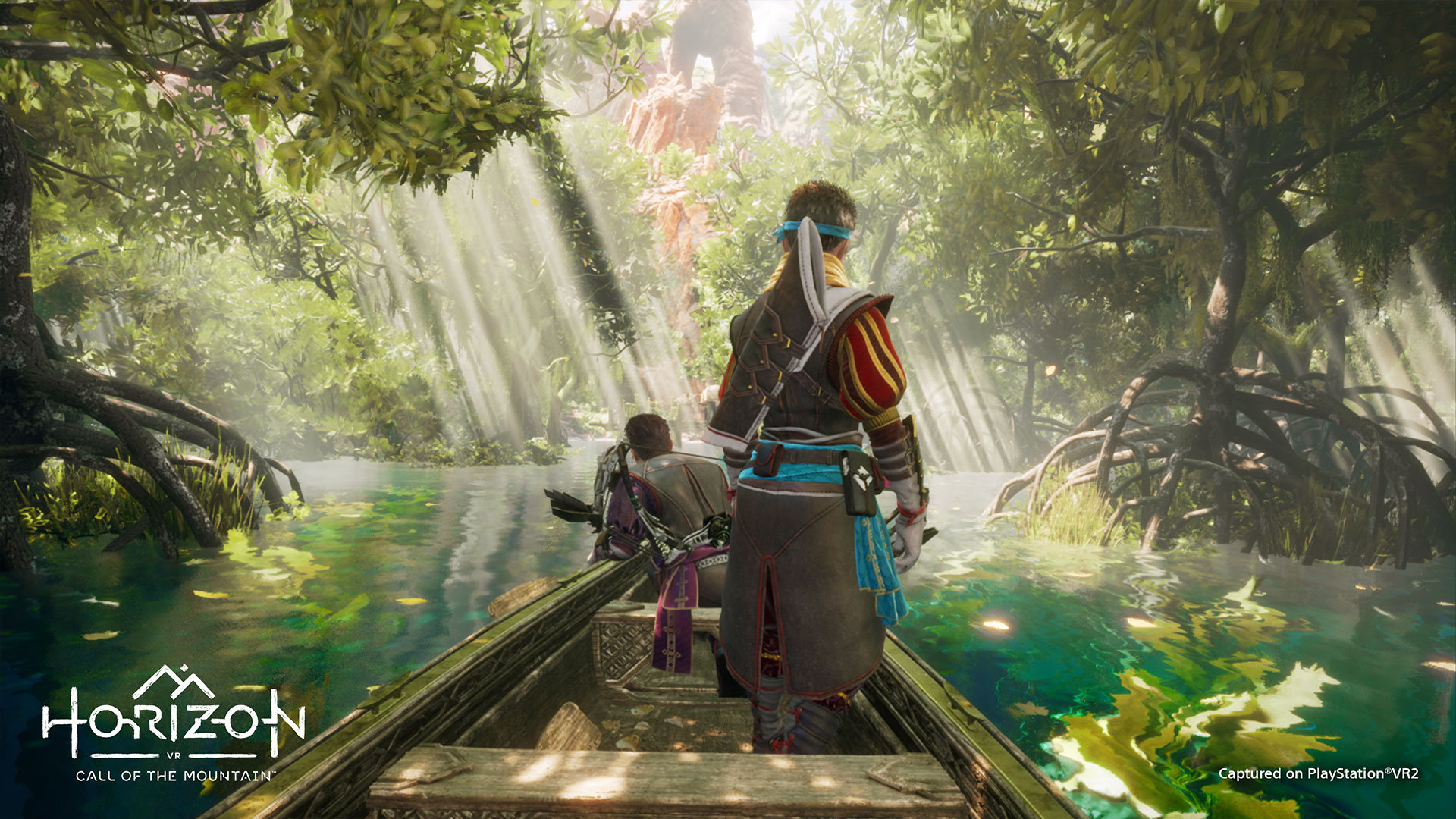
The opening to the demo is essentially an on-rails Disneyland ride, as you're not able to do much beyond sitting in the boat and appreciating your surroundings. But, like all good Disney rides, there's spectacle and drama to be had nonetheless. At one point a Tallneck strides over the river above us and appears skyscraper high. The sense of scale is immense and later when we get more up close and personal with Watchers and Snapmaws you're continually reminded how small humans are in comparison to these metallic beasts. It's a great introduction to the experience of PSVR 2 even if it's just passive initially.
All the upcoming PSVR 2 games confirmed so far
The PSVR 2 fits like a glove I might add; just as easily as the original headset - a button at the front to slide the visor in and out, another on the back surrounded by a wheel to first adjust and then tweak the size of the headband, and a slider for adjusting the distance between the lenses themselves. But the big difference is a loose silicone flap around the bottom of the visor that sits comfortably snug against your nose and cheeks. It definitely gets warm in there as you play, but it's incredibly effective at keeping light out of the PSVR 2 while you play for ultimate immersion. The headset itself is comfortable too, keeping the weight well-distributed around your head, and then you've just got the single - relatively thin - USB cable going to the PS5 itself to worry about as you play.
What's additionally interesting is that before I started the demo, I'm walked through the process of setting up the eyetracking. It's a bit like a trip to the opticians, following a red dot around first a black screen and then a bright white one, alongside seeing a slightly creepy representation of your pupils on screen making sure they're in the perfect position in relation to the displays. In game, eye tracking correlates to being able to choose menu options simply by looking at them, and having to move the camera manually a lot less. I'm intrigued to spend more time with it to see how else it manifests in gameplay, but it's certainly a futuristic addition.
Run for your life
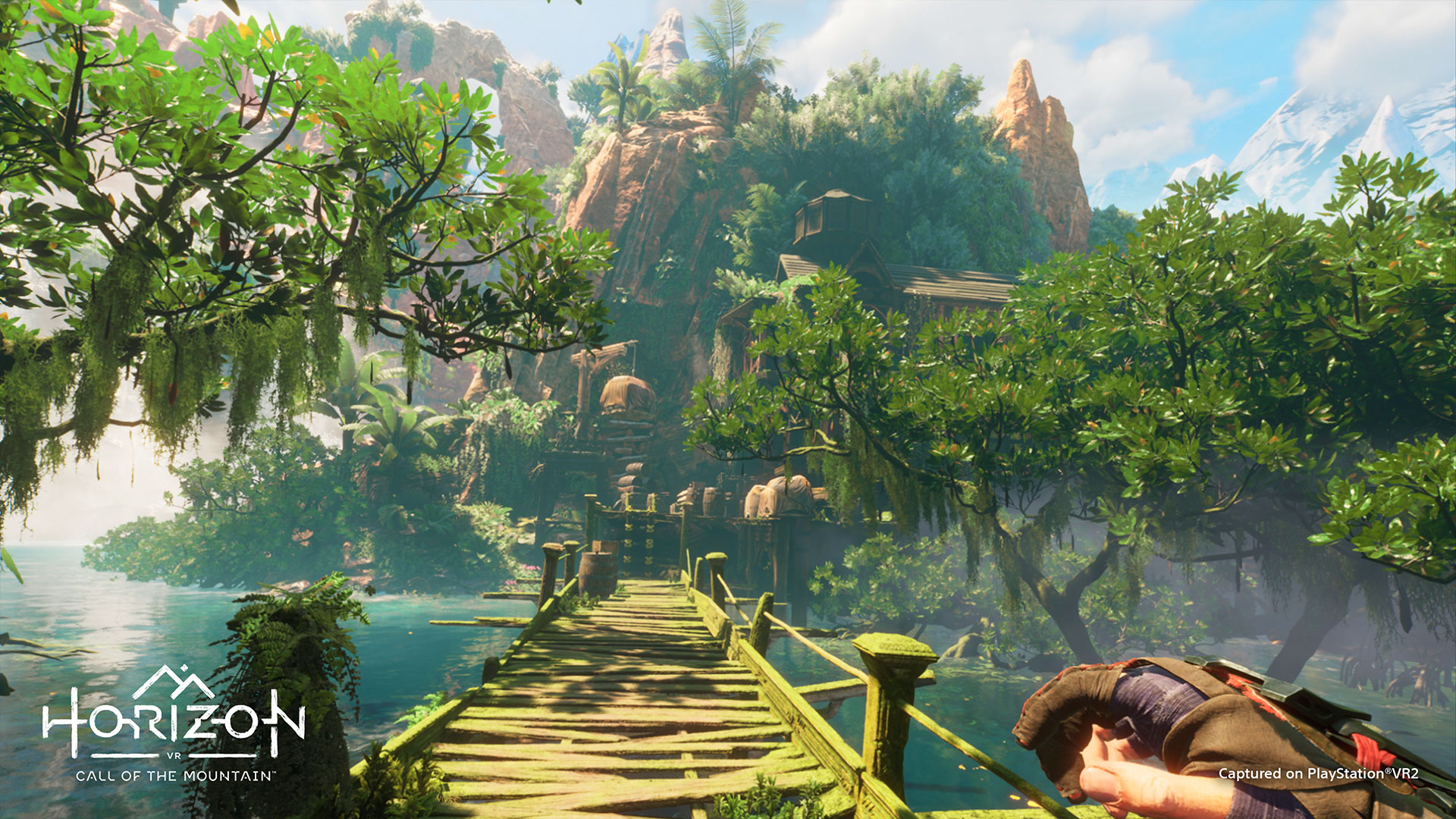
In terms of physical movement, I'm encouraged to try the gesture controls which involve holding down the X and Square buttons on the controller and then moving my arms as if I'm running. This makes the in-game character move, but it's not very precise and I feel pretty stupid doing it. I'd much rather move with the analog sticks and utilize gesture controls for grabbing my bow and arrows - which does work really well. You can reach over your shoulder and hit R2 / L2 depending on your dominant hand, and then use your other hand to reach for each arrow over the other shoulder.
It's an intense experience though in combat as there's a lot to think about. Instead of letting you free-move, you're locked into a circle of movement around your enemy as you face them. You can dodge by holding down square or X and then moving the corresponding hand from side to side, so you need to balance doing that also with aiming and reloading. It's certainly not easy, and aiming really does take some getting used to.
Sign up to the GamesRadar+ Newsletter
Weekly digests, tales from the communities you love, and more
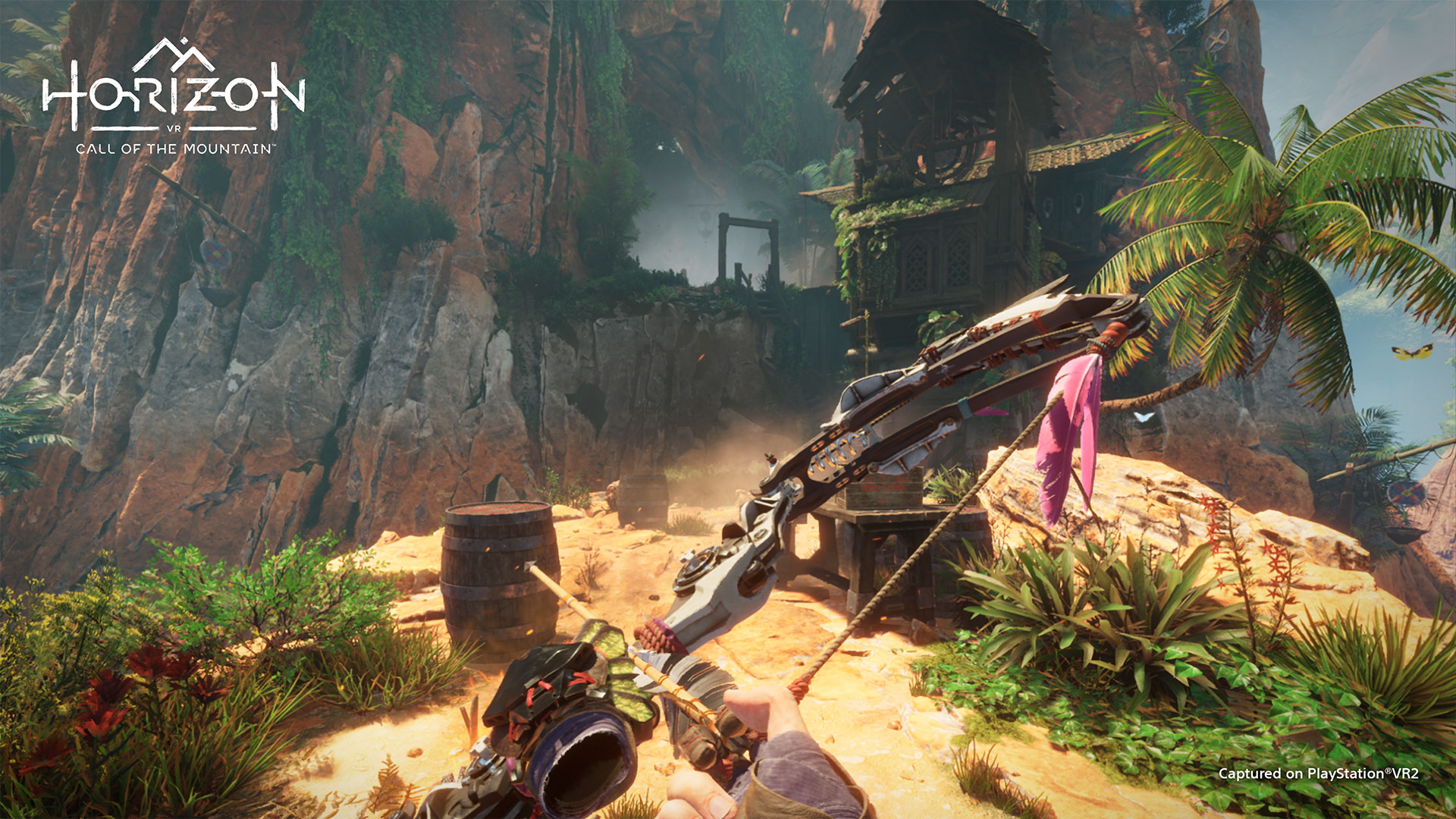
However, climbing feels intuitive and I love the little touches of playfulness from developer Firesprite - like leaving maracas, tamborines, a giant gong, and some wall paints to play around with along the way. It's a great reminder of the fun that can be had with virtual reality, particularly for those who could be coming to this as their first VR experience.
Of course, the demo is only around 30 minutes long so no doubt the full game will offer more chances to familiarise yourself with the controls before you're thrown into combat. The enemies are tough and follow the same rules as the main games - at least with the Watcher I took on - where you can knock armor off and deal more damage by hitting weak points. It's an impressive translation of the core game mechanics to VR, and I'm genuinely dreading having to take on anything larger until I've had a lot more practice.
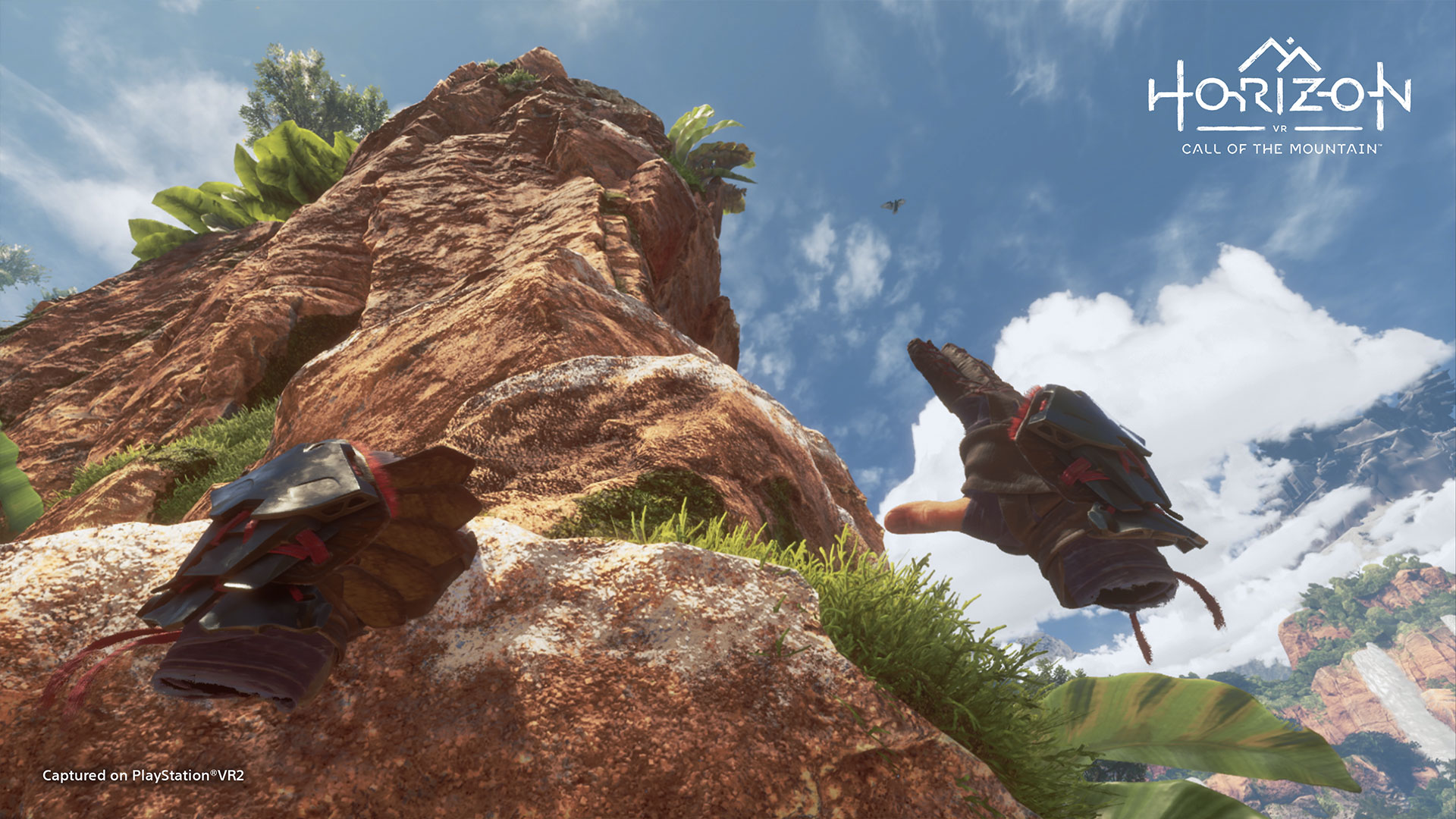
What I've played of Horizon: Call of the Mountain is a stunning experience - both in terms of the VR immersion and the opportunity to live more in the Horizon world. Do I think it's worth investing in a PSVR 2 for? I honestly don't know at this stage. The PSVR 2 Horizon Call of the Mountain Bundle is £569 / $599.99, which is a serious investment, so I'll hold judgment until I can take the full experience for a spin.

Sam Loveridge is the Brand Director and former Global Editor-in-Chief of GamesRadar. She joined the team in August 2017. Sam came to GamesRadar after working at TrustedReviews, Digital Spy, and Fandom, following the completion of an MA in Journalism. In her time, she's also had appearances on The Guardian, BBC, and more. Her experience has seen her cover console and PC games, along with gaming hardware, for a decade, and for GamesRadar, she's in charge of the site's overall direction, managing the team, and making sure it's the best it can be. Her gaming passions lie with weird simulation games, big open-world RPGs, and beautifully crafted indies. She plays across all platforms, and specializes in titles like Pokemon, Assassin's Creed, The Sims, and more. Basically, she loves all games that aren't sports or fighting titles! In her spare time, Sam likes to live like Stardew Valley by cooking and baking, growing vegetables, and enjoying life in the countryside.


